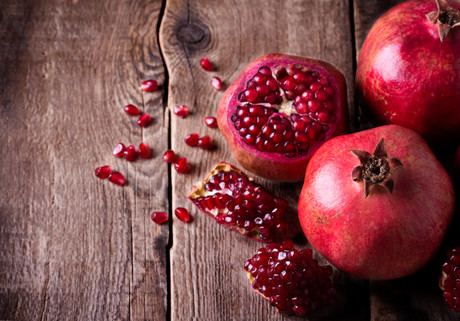Frozen pomegranate recalled following hepatitis scare

Entyce Food Ingredients has recalled its Creative Gourmet frozen pomegranate over fears it may be linked to seven cases of hepatitis A.
All seven affected people had consumed the imported frozen pomegranate arils (180 g) sold in Coles, and NSW Health and the NSW Food Authority are working with the frozen food company to confirm the link and limit the potential food safety hazard.
Using genetic testing, NSW Health has identified a unique strain of hepatitis A — genotype B — and they are trying to determine if other states and territories have had similar cases. Individuals affected in the current outbreak are from Sydney, Wollongong and the Central Coast.
Entyce Food Ingredients has experienced several other incidents over the past few years in which it has had to recall its products due to health concerns. In 2015 and 2017, its Creative Gourmet mixed berries were linked to two different outbreaks of hepatitis A.
The most recent one has resulted in the recall of all Creative Gourmet pomegranate with best before dates up to and including 21/03/20. However, the company states the recall is voluntary and illustrates its “abundant caution” regarding food safety.
“All product tested to date has been cleared and has not revealed a link to Hepatitis A but the health and safety of our consumers is of paramount importance,” Entyce said in a statement.
It continued by reassuring the recall is isolated to just the one Creative Gourmet product and makes up “less than one per cent of the Creative Gourmet fruit sold annually in Australia”.

Anyone who has purchased the product is encouraged to discard it or return it to Coles for a full refund.
Director of Communicable Diseases at NSW Health Dr Vicky Sheppeard explained that symptoms of hepatitis A can take between 15 and 50 days to develop, and these may include nausea, vomiting, fever and yellowing of the skin, dark urine and pale stools. She advised anybody who has recently consumed the frozen pomegranate to consult their doctor and potentially seek vaccinations.
“In most people the symptoms resolve after a few weeks with supportive treatment, mainly rest and fluids,” she said.
NSW Food Authority CEO Lisa Szabo pointed out that Australian-grown frozen pomegranate or fresh pomegranate has not been implicated.
A pinch of saltbush for functional and nutritional benefits
An Australian desert plant could help food manufacturers improve protein quality and reduce...
Chemical food additive BHA under review in the US
The FDA identified butylated hydroxyanisole (BHA) as a top priority for review as part of its...
Call for comment on a new source of 2′-FL in infant formula products
FSANZ is calling for comments on an application to permit 2′-fucosyllactose produced from a...











